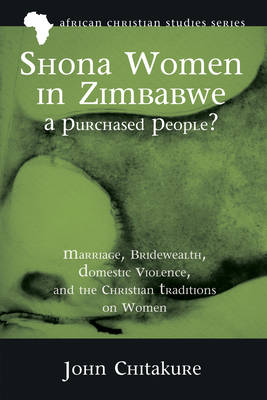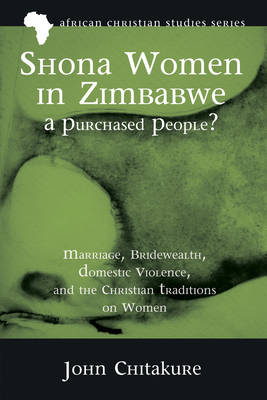
- Retrait gratuit dans votre magasin Club
- 7.000.000 titres dans notre catalogue
- Payer en toute sécurité
- Toujours un magasin près de chez vous
- Retrait gratuit dans votre magasin Club
- 7.000.000 titres dans notre catalogue
- Payer en toute sécurité
- Toujours un magasin près de chez vous
Description
The position and treatment of women in every religion, culture, and society have been subjects of concern for a long time. In every society, women fight for their emancipation from exploitive and oppressive patriarchal structures. The most contentious issues include domestic violence, gender discrimination and inequality in the areas of employment, leadership, and marriage. Domestic violence tops the list and is the worst enemy of any progressive and democratic society. It dehumanizes, disfigures, and demeans its victims and survivors. Shona Women in Zimbabwe--a Purchased People? explores the causes of domestic violence--the cultural practice of bridewealth, in particular--and assesses the extent to which it contributes to the proliferation of domestic violence among the Shona people of Zimbabwe. It then explores the Christian traditions, particularly, the Roman Catholic Church, in search of resources that can be used to emancipate Shona women from patriarchal subjugation. Finally, the book offers a pastoral response that is informed by the experiences of the Shona women, their cultural resources, and the Roman Catholic religious tradition. ""The range of issues raised and the depth with which they are discussed are important far beyond Zimbabwe, because the phenomenon of violence against women is one of the truly global phenomena of our time. . . . But in the final analysis what gives this text its heft and resonance is the author's personal experience. He begins with the words 'My father was a heavyweight boxing champion, who always made sure his opponent was knocked down in the first round.' As the first chapter progresses we realize that the 'opponent' who always loses is John Chitakure's mother. . . . Thank you VaChitakure for this incredibly important book, which you have woven from the fabric of your experience and knowledge."" --Sheelagh Stewart, Founder and first CEO, the Musasa Project (the first organization against violence against women in independent Africa), Zimbabwe, 1988-91 John Chitakure is adjunct Professor of World Religions and The Religious Quest at The University of the Incarnate Word in San Antonio, Texas. He is the author of The Pursuit of the Sacred (2016).
Spécifications
Parties prenantes
- Auteur(s) :
- Editeur:
Contenu
- Nombre de pages :
- 164
- Langue:
- Anglais
- Collection :
- Tome:
- n° 12
Caractéristiques
- EAN:
- 9781498293075
- Date de parution :
- 29-09-16
- Format:
- Livre relié
- Format numérique:
- Genaaid
- Dimensions :
- 152 mm x 229 mm
- Poids :
- 394 g







